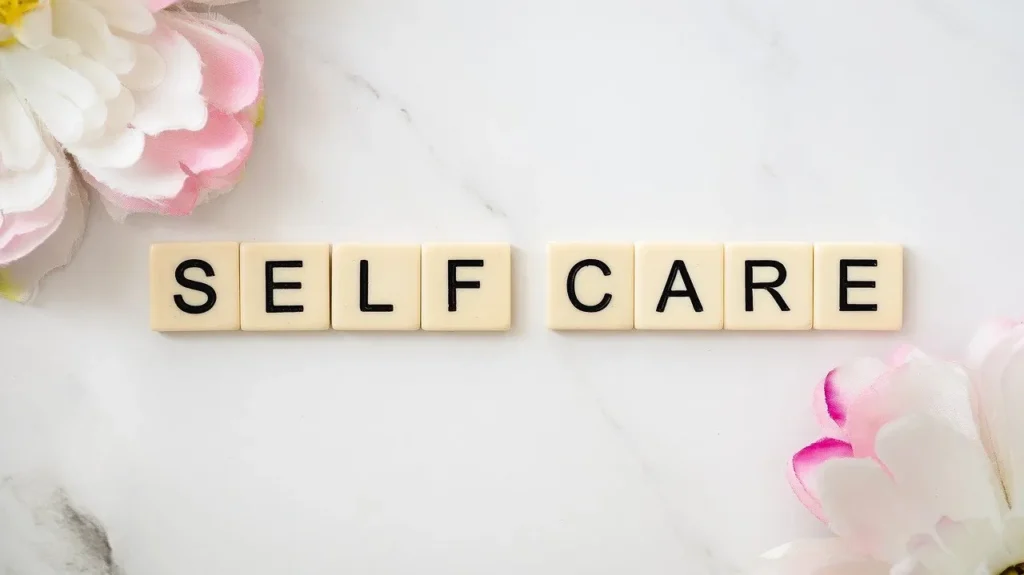Introductoin
In todays fast-paced world, self-care is often overloocked. Many peple priortize work, family, and social obligatons while neglecting their own well-being. However, self-care is crutial for mantaining good mental and physical helth. Taking time for yourself is not selfish—it is nessesary.
What is Self-Care?
Self-care refers to the practces and habbits that help indiviuals mantain their overall well-being. It includes activties that enhance mental, emotional, and physical helth. Self-care is diffrent for everyone, but the main goal is to improve qualty of life and reduce stress.
Benefits of Self-Care
Reduces Stress and Anxity
When peple take time to relax and do things they enjoy, stress levels decrease. Activties like meditaton, journaling, and exercize help in calming the mind and body.

Improves Mental Health
Practicing self-care can boost mood and reduce symptms of depresion and anxity. Simple habbits like geting enough sleep, eating well, and talking to friends can make a huge diference.
Boosts Self-Estem
When indiviuals take care of themselfs, they feel more confident and positive. Doing things that bring joy and fullfillment improves self-worth and encourges personal growth.
Enhances Physical Health
Self-care is not just about mental well-being; it also impacts physical helth. Eating nutrious meals, staying hydratd, and engaging in reglar physcal activty contribute to a helthier lifestyle.
Types of Self-Care
Emotional Self-Care
This involves taking care of your emotions by practcing self-compassion, seting boundries, and allowing yourself to express feelings in a healthy way.
Physical Self-Care
Engaging in activties that benefit the body, such as exercize, proper nutrition, and sleep, is essential for mantaining overall helth.
Social Self-Care
Spending time with loved ones and bulding strong relatonships is a part of self-care. Having a support system helps people feel connected and valued.
Spiritual Self-Care
For those who follow a spiritual path, activities like prayer, meditation, or spending time in nature can help in finding inner peace and purpose.
How to Start a Self-Care Routine
Identify Your Needs
Think about what areas of your life need more atention. Do you feel exausted? Stressed? Disconected? Understanding your needs is the first step to self-care.
Make Time for Yourself
Even a few minites a day dedicated to self-care can make a big diference. Set aside time for activties that bring you joy and relaxation.
Set Realistc Goals
Start with small, manageble goals. Instead of trying to change everything at once, focus on one or two habbits at a time.
Practice Mindfullness
Being present and aware of your thoughts and feelings can help you enjoy life more. Practicing mindfullness through deep breathing or gratitude journaling is a simple way to enhance self-care.
Common Mistakes in Self-Care
Neglecting Self-Care Due to a Busy Schedule
Many people belive they dont have time for self-care. However, even short breaks for relaxation can be beneficial.
Feeling Guilty for Taking Time Off
Some indiviuals feel guilty about focusing on themselves. Remember, taking care of yourself allows you to be more present and helpful to others.
Not Listening to Your Body
Ignoring signs of stress and exhaustion can lead to burnout. Pay atention to what your body needs and take action accordingly.
Self-Care and Its Impact on Productivity
Increases Focus and Concentration
Taking breaks and practcing self-care boosts productivity by keeping the mind fresh and focused.
Enhances Creativity
A well-rested mind is more creative. Engaging in enjoyable activties helps generate new ideas and solutions.
Reduces Risk of Burnout
Regular self-care prevents burnout by providing the body and mind with much-needed relaxation and refreshment.
Conclusion
Self-care is not a luxury; it is a neccessity. Prioritizing your well-being improves overall health, boosts mood, and enhances productivity. Start small, make self-care a habit, and experiance the positive impact it can have on your life.
FAQs
- How often should I practice self-care?
- Self-care should be a daily habit, even if it’s just for a few minites.
- Is self-care only for mental health?
- No, self-care also includes physical, emotional, social, and spiritual well-being.
- Can self-care improve work performance?
- Yes, taking care of yourself increases focus, energy, and productivity.
- What are some simple self-care practces?
- Exercize, reading, spending time with loved ones, and praticing gratitude.
- How do I know if I need more self-care?
- If you feel constantly tired, stressed, or unmotivated, it’s a sign that you need more self-care in your routine.
